It’s hard to find a sound, one that’s truly and distinctly yours. It’s even harder, still, to hold onto that sound once you’ve got it. The ebb and flow can bring some together, while it can tear others apart. On both accounts, New Zealand indie rock legends The Bats understand this: they’ve been playing as the same quartet together for 37 years. Within a few minutes of talking with members Paul Kean and Robert Scott, I understood exactly why: they’re humble, conscious, and charming. Talking with them felt more like catching up with old friends than interviewing musicians with enduring prestige and experience. The occasion for our chat is the release of their excellent 10th album, FOOTHILLS. We chat about their musical evolution, roommates, online streaming, and egg slicers.
How are you both today?
Paul Kean: Pretty good! We had a couple days off after doing a gig in Christchurch, here in our local theater, and also, you know of course, the album released!
Yeah, November 13th, right? Fresh off the release!
PK: Yeah!
I love it, I love the new album. All of your work is incredible stuff. Incredible work. I did the math and The Bats formed in the early 80s, I’m 22, which means you’ve been doing this almost twice my lifetime, which is such an impressive run!
PK: You know what? It’s three times your lifetime! I’ve been alive three times your lifetime.
So, when did you start playing music?
PK: Oh, well, if I go right back, when I was a little toddler at home, we were allowed to dive into the little pots cupboard. I remember finding—this is a weird story—I found an egg slicer. Do you even know what they look like?
An egg slicer?
PK: Yeah, you know, like a hardboiled egg? You put a hardboiled egg that’s had the shell taken off it into this slicer and you push these wires down and it slices it up into lovely little sandwich-sized pieces! And so it had these wires strewn across it, and I can remember, really quite clearly, plucking on these little strings, thinking “Wow, this is neat!” So that was probably my very first instrument! It was amazing, rather than banging the pots, I was plucking the strings on the egg slicer.
Looking at The Bats’ history, the first word that comes to mind is “loyalty.” After 37 years and 10 albums with the same members, same record label—there’s been side projects, there’s been a 10-year hiatus, of course—but what do you think has kept The Bats together longer than most marriages?
Robert Scott: Probably just our love of making music together, really! The fun of it, the joy of it. Wanting to share our ideas and what we’re doing with people—you get a lot of enjoyment out of that.
See, that’s what I’m wondering: going on 37 years, have your tastes evolved together, or is there that back and forth, that clash, that really could make better art?
RS: I don’t think there’s a clash, I think we’ve all got our own tastes and we bring those to the table when we’re playing and we definitely don’t try and argue “the music I like is better than the music you like” because it’s completely subjective. It’s a case of “you like that, I like this.” You know, sometimes those things line up and sometimes they don’t. That’s human nature.
PK: That’s the answer to our longevity! Bob, who’s the main songwriter, seems to sort-of bring out what we put into it. Sometimes, we say “Oh, that doesn’t quite feel right,” and we generally agree with it pretty quickly and move on.
One of the biggest contributing factors to your success early on was student radio and college radio. If I can interject, for myself anyway, the other day I was playing your EP SPILL THE BEANS from a speaker in my room, and not one, but two of my roommates stopped in the hall and asked who the artist was. And my third was out for coffee or something so, by my count, that’s a pretty perfect score and a testament to you guys having a really distinct, specific sound that can catch people’s ears in that way. How did you find that sound?
RS: We don’t analyze our sound too much. We arrived at it through what we bring to the table, in terms of when we play together and the way I write songs. We’ve fine-tuned over the years, so when we come to each album, we’re possibly coming from a slightly different place in our playing, but we’ve definitely got our basic sound. It’s very catchy and immediate and that’s due to our sense of rhythm and the melody of the instrumentation and vocals is a very strong thing. That does make it immediate for people. That does tend to catch people’s ears.
So with inspirations, with bands that have been around forever, with Spotify, what’s your favorite decade of music?
RS: I don’t have one. I hate putting music down to what your favorite songs are and I don’t go there because my opinion changes from hour to hour anyway, so I find it really hard to pick a decade of music, for sure. It’s too difficult.
PK: I think over the decades, you can’t really break them down to a style or an influence but, for myself, I think of the ‘60s as a big influence on me—1966, in particular, seemed to have a fantastic range of Top 20 songs from a real variety of musicians: the likes of the Troggs, Kinks, Stones, Beatles, you know, there’s a whole bunch of them. Mamas and Papas, yeah. A lot of classic stuff and then, from there, you have, like Bob says, your mood changes from hour to hour—what you want to listen to, what inspires you.
What were your inspirations then after all these years for FOOTHILLS, and how do you feel, since your debut album DADDY’S HIGHWAY, your experiences have changed over time?
PK: I think they’ve evolved quite slowly, but they’ve definitely evolved. You know, we listen back now and again and review. Well, I do, in particular because I’m often doing the recording or mixing. I think we’ve changed, but, subtly over time. If you compare DADDY’S HIGHWAY with what we’ve done now, there’s not a lot of difference, really, in terms of our style and our approach. I think it’s something that’s worked really well.
It’s funny, I was just thinking beforehand about how things keep evolving and changing all the time and sometimes you’ve gotta keep running to try and keep up with where the world’s at and I think, ah jeez, I just want to relax. I want to do something that’s a little bit, I don’t know—I want to just sit happily with something that’s familiar and works. Especially with things like the internet and all these different platforms we’ve got to communicate with to get the message out. It used to be just radio and newspapers, or magazines. Just so many choices now, and Pitchfork used to be one of those favorite places we used to go to but seems like Pitchfork has changed as well now. I’m confused!
What are the tracks on FOOTHILLS that you’re most excited for people to hear?
RS: Oh, that’s a good one! I’d have to say the album as a whole. I find it hard to break it down into different tracks and I think when people are listening, they’ll have their own favorites so I think it’s up to the listener to have their favorite tracks.
PK: Yeah, and it really does work as a whole. It’s interesting, we spent a bit of time figuring out what the tracklist was going to be, with an A and a B side. I think we really hit the mark with this. You can play it at the beginning, and it will take you on a journey and then you float away on “Electric Sea View” at the end. But, for me, if you want to dance, “Smaller Pieces” is great, and if you want to be a little more reflective, “Gone to Ground” is my favorite.
RS: I think it’s a love/hate with that. I think it’s Kaye’s least favorite.
PK: “Another Door” is the most likely favorite on the album. Kaye, me, our daughters and their partners all like it.
Robert, your daughter, B, is a member of Superorganism. How’s the father-daughter rockstar dynamic?
RS: Well, we just check in with one another every so often to see how we’re going personally and professionally. I check in, she shares a lot of stuff—what the band is up to. Pre-COVID, when travelling around the world, we check in on each other quite a bit, see what we’re up to. She has little videos of some of the gigs they were doing when they were able to gig around the world, before COVID. So, yeah, it’s fun comparing notes with her.
Any chance at a future collaboration?
RS: Possibly! You never know! It would be good.
That would be cool! And growing up, how do you think the Bats have inspired B, and Superorganism, as a result?
RS: I think growing up around the music like she did just made her realize that if you’ve got some conviction and strong ideas, you can do it. You can make it happen.
That’s wonderful, that’s great advice right there. As an art student myself, I like hearing that. Here in the states we’re all really missing live shows. You guys have started back up your gigs again. Now that you’re back performing, how has the return been and what has changed in a post-COVID world, if anything?
PK: I don’t think much has changed, really. I think people are obviously enjoying being able to go see live bands again. The audiences are pretty enthusiastic and appreciative of being able to go see live music when it’s not happening elsewhere. Yeah, apart from that, not a lot’s changed, really.
There were all those concerns early on, at least here in the US, that, after COVID, things wouldn’t go back naturally, like mass crowds and that kind of stuff, so I’m very glad to hear that.
PK: We’re still a little cautious about it over here. We occasionally get one or two community cases and everyone’s thinking “Ooh, we’ve got to go back into lockdown and lose the ability to do gigs again.” Overall, we’re in such a better, stable place than a lot of places in the world so we feel kind of lucky over here, in a way. In terms of travelling overseas, it’s going to be a wee while. We’re going to have to rely on the livestreams and sharing our music through the internet.
And what are the challenges and opportunities presented from that? From streaming shows?
PK: Well, I guess for streaming, you don’t get that empathy that you have with a live audience quite the same. You can feel a little bit alone and I, personally, rely a lot on audience feedback and drive. For me, for playing. I love it when people are dancing all around, singing along, or just swaying, you know? We all miss that, and also, in terms of making a living from it, it’s pretty tricky to do that. But, I think, if people were feeling like contributing towards supporting our music through Bandcamp and the likes rather than Spotify because Spotify are basically crooks. They basically take the Lion’s share of the income from bands like us and we see next to nothing so go to Bandcamp and buy your music there. We’d really appreciate that!
Bandcamp! Don’t use Spotify to support your favorite artist!
PK: That’d be appreciated. I don’t think a lot of people realize, with the monthly fee, that such a tiny percentage goes to bands that aren’t getting millions of listens, and,I think the big record companies that run those bands squeeze Spotify to pay out the royalties to them but, unfortunately, we can’t afford to do that.
How does that compare to the iTunes era? Is Spotify worse than iTunes?
PS: Oh, way worse. iTunes was tricky to try and be recognized way over here in New Zealand for a little while but at least there was some income from it. But, with Spotify, so far, we’ve seen like 0.01 cents per play or something ridiculous like that, so we had to really get up to millions of listens before we see anything. We get tens, maybe hundreds of thousands of listens on some songs. “Made Up in Blue,” because it’s been around for so long, it’s up there at 1.6 million, I think, last time I looked, but that’s over a Hell of a long period. I don’t want to put people off using it to explore new music and I occasionally use it myself.
Do you have any advice for newcomers about not selling out or letting your head get too big in the music industry?
PK: Find your own self in the music rather than trying to borrow it from other places. Keep your influences broad. I sometimes say the birds singing can influence my music! *train whistle in background* Oh! And there’s the train coming by! There you go, that’s another influence! *laughs*
One last question for you: 37 years together as a band and you seem to have gotten along pretty well. That’s commendable! I struggle sometimes to get along with my college roommates who I’ve known for just one year. What advice would you give about getting on with our roommates?
PS: Ooh, with your roommates? Talk about any issues that are troubling you—about what’s going on—and work out a way to resolve them, I guess.
RK: Yeah, and everyone comes from different upbringings and different family routines. You know, sometimes you’ve got to find the differences and accept them.
PS: In terms of The Bats’ longevity, we haven’t really been full-time at it, all the time, so I think that helps as well. So, sometimes, with those flatmates you’ve got, you’ve got to give each other a little bit of space. Don’t got to be together all of the time. Pop off to your room or go for a walk; get time alone.
You can check out FOOTHILLS over on Bandcamp!


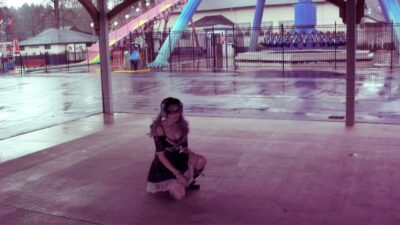

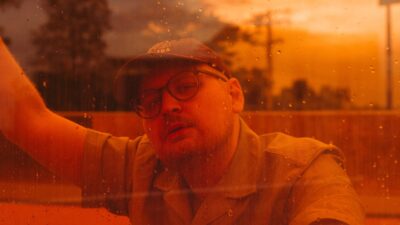
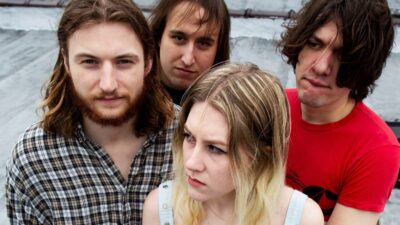

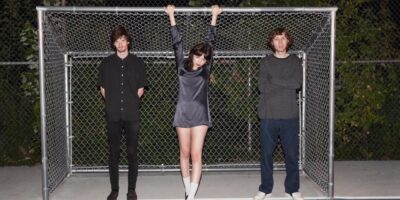

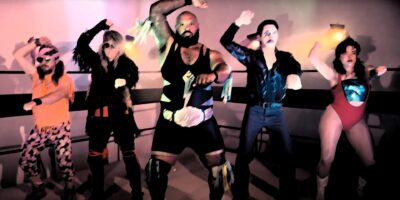
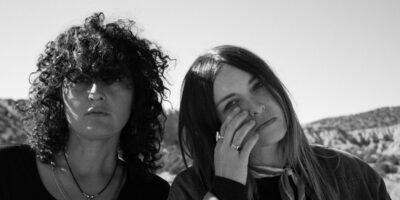
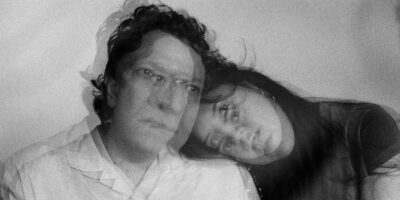




Comments